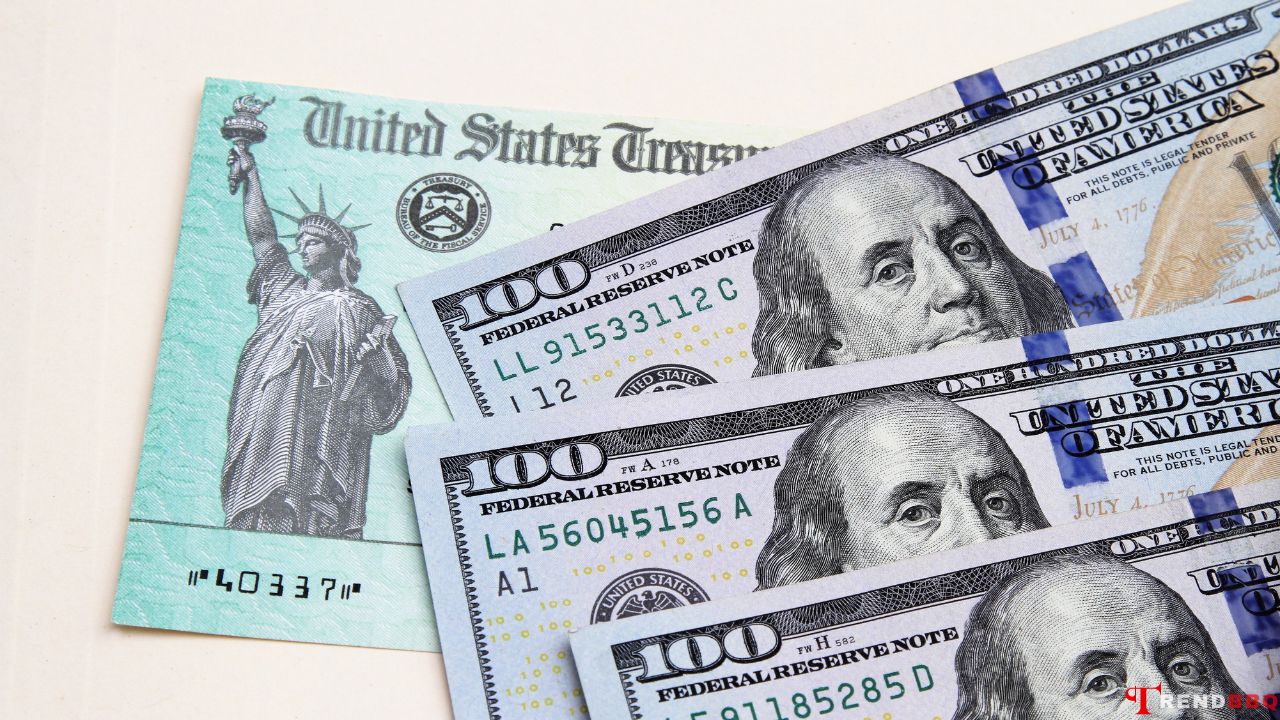
If you’re seeking a secure investment option with low risk and reliable returns, look no further than Treasury Bills (T-Bills). These debt instruments issued by governments provide a safe haven for investors. If you’re wondering how to buy Treasury Bills and want to make informed financial decisions, this guide of Trendbbq.com will walk you through the process. Read on to discover the benefits of T-Bills and the step-by-step approach to acquire them.
Table of Contents,
1. What are Treasury Bills and Why Invest in Them?
Before delving into the buying process, it’s crucial to understand what Treasury Bills are and why they are a preferred investment option. T-Bills are short-term debt securities issued by the government to fund its activities. They come with varying maturities, typically ranging from a few days to one year.
One of the primary reasons to invest in T-Bills is their safety. Backed by the government, they are considered one of the least risky investments available. Moreover, T-Bills offer a fixed return, which is especially attractive to risk-averse investors seeking stable earnings.

2. How treasury bills work
Here’s how treasury bills work:
- Issuance: The government issues treasury bills through periodic auctions or direct sales to financial institutions, such as banks, or individual investors. The bills are usually issued with maturities ranging from a few days to one year.
- Maturity and Face Value: Treasury bills have a fixed maturity date, which means they have a specific length until they mature. When you buy a T-bill, you will know exactly when it will mature. They are issued at a discount to their face value, which means investors buy them for less than their face value and then receive the full face value at maturity.
- Discounted Pricing: Treasury bills are sold at a price below their face value, and the difference between the purchase price and the face value is the investor’s return. This difference represents the interest earned on the investment, and it is effectively the interest rate for the T-bill.
- No Coupon Payments: Unlike bonds, treasury bills do not make regular interest payments (coupon payments) during their tenure. Instead, the interest is earned at the time of purchase and is realized when the bill matures.
- Secondary Market: While treasury bills are initially sold through auctions or direct sales, they can also be traded on the secondary market before their maturity date. The price at which they trade on the secondary market fluctuates based on changes in interest rates and investor demand.
- Safety and Risk: Treasury bills are considered extremely safe investments because they are backed by the government, which has the power to tax and print money to meet its obligations. However, like all investments, there is still a small degree of risk, such as interest rate risk if you need to sell the T-bill before maturity, or inflation risk if the rate of inflation erodes the purchasing power of your investment.
- Tax Considerations: While the interest earned on treasury bills is exempt from state and local taxes, it is subject to federal income tax. However, investors can choose to invest in Treasury Inflation-Protected Securities (TIPS) to hedge against inflation and avoid paying taxes on the inflation-adjusted principal amount until maturity.
- Investment Horizon: Treasury bills are suitable for investors looking for a short-term, low-risk investment option. They are often used as a cash-equivalent or as a safe place to park funds temporarily.
3. Step-by-Step Guide on How to Buy Treasury Bills
- Assess Your Financial Goals: Determine the amount you want to invest in T-Bills and set clear financial objectives. Are you looking for short-term liquidity or seeking a secure parking spot for your funds?
- Choose a Reputable Brokerage: To buy Treasury Bills, you will need a brokerage account. Select a reputable brokerage that offers easy access to T-Bill purchases and competitive fees.
- Complete Necessary Documentation: As with any investment, opening a brokerage account requires completing required documentation and complying with Know Your Customer (KYC) regulations.
- Fund Your Brokerage Account: Transfer the desired amount of funds into your brokerage account to be used for T-Bill purchases.
- Access the Treasury Bill Market: With a funded brokerage account, access the Treasury Bill market through the platform provided by your chosen brokerage.
- Select Your Treasury Bills: Choose the specific T-Bills you wish to purchase based on their maturity dates and interest rates.
- Place Your Order: Indicate the amount and type of T-Bills you want to buy and place your order through your brokerage account.
- Monitor Your Investment: Keep an eye on your T-Bill investments and be aware of their maturity dates. Upon maturity, you will receive the principal amount along with the accrued interest.
4. Purpose of using treasury bills
The State Bank issues bills with the primary objective of controlling the money supply and reducing the maximum level of currency circulation in the market. These bills are used as a means to regulate the movement of currency and implement tighter monetary policies, aiming to prevent currency devaluation caused by inflation.
Conversely, when there is a need to loosen monetary policies and increase the money supply, the State Bank buys back the bills, providing organizations and businesses with additional funds to support their economic development activities. This measure is typically employed when inflation is no longer a concern.
Bills have emerged as an essential tool for managing and controlling monetary flows nationwide, playing a crucial role in the functions of banks. The article has outlined the purpose and issuance methods of these financial instruments, providing valuable insights and knowledge in this area. I hope this information enhances your understanding in this field.

5. Advantages and disadvantages of investing in treasury bills
Advantage
All Treasury bills are backed by Government and State guarantees. Therefore, it is a very safe and low-risk investment channel. Even in times of severe financial crisis, worst case scenario, the Government still has the power to collect more taxes and print more money to pay off debt.
In addition, with a minimum initial capital of only 100,000 VND, this will be an easily accessible channel for many investors in the market.
Defect
As one of the safest short-term investment channels, government bills offer relatively low returns compared to other debt instruments. In fact, the returns on this type of T-bill can be lower than most money market instruments.
In addition, the profits of this type of bills are recognized only when they mature. This is also what makes them a less attractive investment channel, especially for investors looking for a steady stream of cash.
In conclusion, buying Treasury Bills is an excellent option for risk-averse investors seeking secure and stable returns. With the step-by-step guide provided, you can confidently navigate the process of purchasing T-Bills. Remember to assess your financial goals, choose a reputable brokerage, and carefully select the T-Bills that align with your investment objectives. By following these steps, you’ll be on your way to building a robust and secure investment portfolio with Treasury Bills.
6. FAQs
What are Treasury Bills (T-Bills)?
Treasury Bills are short-term debt securities issued by governments to raise funds. In the case of the United States, T-Bills are issued by the U.S. Department of the Treasury.
How do Treasury Bills work?
When you buy a Treasury Bill, you are essentially lending money to the government for a specified period (usually ranging from a few days to one year). At maturity, the government pays you the face value (par value) of the T-Bill.
How are Treasury Bills different from other government bonds?
Treasury Bills have shorter maturities (less than one year) compared to other government bonds, such as Treasury Notes and Treasury Bonds, which have longer maturities (up to 30 years).
Are Treasury Bills taxable?
Yes, the interest income earned from Treasury Bills is generally subject to federal income tax, but it is exempt from state and local income taxes.
Can foreigners invest in U.S. Treasury Bills?
Yes, Treasury Bills are open to foreign investors. Many international investors consider them a safe haven for capital preservation.




Dice games are all about probability, right? It’s fascinating how platforms like ph889 login emphasize fair play with RNG tech & transparent RTP – crucial for a good experience! Quick registration is a plus too. 😉
It’s smart to prioritize security in online gaming – KYC is essential these days. Seeing platforms like jljl77 2025 app focus on data transparency & verification gives me confidence. Responsible play is key, always!
Blackjack strategy is fascinating – understanding those percentages really shifts your game! Seeing platforms like jl3 slot download prioritize secure account setup & smooth deposits is great for peace of mind while you learn. Definitely helps focus on the fun!
I don’t think the title of your article matches the content lol. Just kidding, mainly because I had some doubts after reading the article. https://www.binance.com/join?ref=P9L9FQKY
Interesting read! It’s smart to prioritize legal & secure platforms these days. Seeing sites like ph333 online casino focus on PAGCOR licensing & responsible gaming is reassuring – transparency is key, especially with deposit options like GCash!
Opa, alguém sabe o que é esse tal de ckbeto que o pessoal tá falando? É algum código promocional ou alguma coisa do tipo? Tô curioso!
Roulette strategy is fascinating – balancing risk & reward! Seeing platforms like 777pnl app cater to local preferences with PHP transactions is smart. Quick registration (under 2 mins!) is a huge plus for accessibility. 🤔
Your article helped me a lot, is there any more related content? Thanks!
I have to say, I really enjoy playing on 88betag. Very professional, easy to use, and the games are very fun! Check them out at: 88betag
Alright, so I gave bswinbet a shot. Interface is pretty slick, and didn’t have any problems finding the games I wanted. Definitely a solid choice for your betting needs. Check it out here: bswinbet
Decent casino experience on codwincasino. The live games are pretty good, and the customer support is responsive. Give codwincasino a try if you’re after something new.